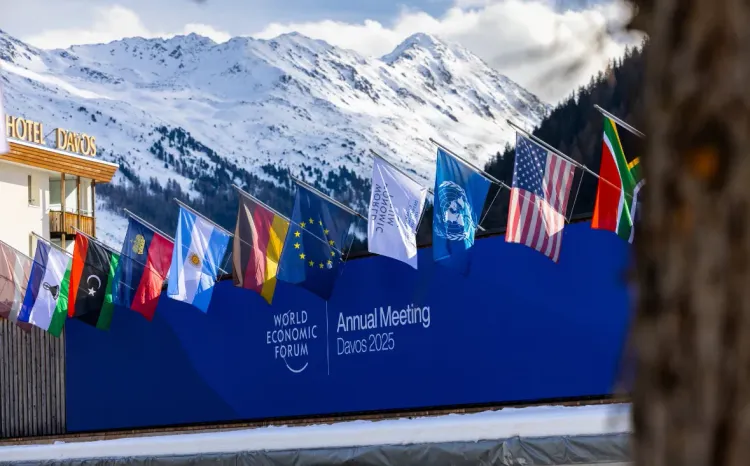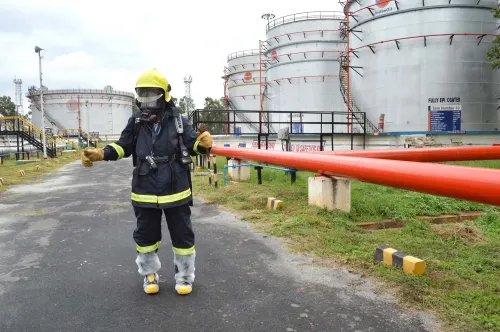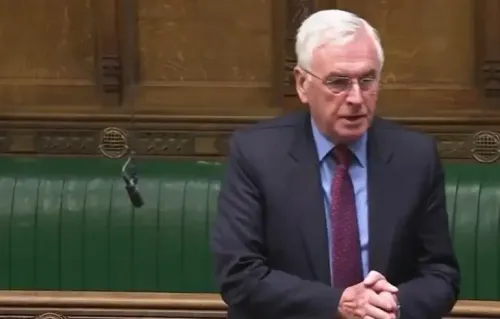The Importance of Resilience in a Turbulent World: Insights from WEF's CEO

Synopsis
Key Takeaways
- Resilience is essential in today's volatile environment.
- Collaboration and proactive strategies are necessary.
- Investment in future preparedness is crucial.
- Organizations must balance short-term actions with long-term resilience.
- Geopolitical tensions require supply chain diversification.
Davos, Jan 21 (NationPress) With the rise of global volatility and compounded risks, organizations are required to constantly adjust to intricate macroeconomic and geopolitical landscapes, stated Borge Brende, the president and CEO of the World Economic Forum (WEF), on Tuesday.
The 55th WEF Annual Meeting commenced with the theme "Collaboration for the Intelligent Age" in the Swiss Alps.
Brende referenced the report titled ‘The Resilience Pulse Check: Harnessing Collaboration’ produced by the WEF and McKinsey & Company, emphasizing that resilience is essential for success in today’s unpredictable environment.
“The report underscores the importance of collaboration and proactive measures in areas such as sustainable investment, workforce readiness, and macroeconomic stability,” he remarked.
As stated in the white paper, with increasing volatility and compounded risks, leaders are realizing that the capacity to navigate and adapt to complex macroeconomic and geopolitical situations is vital for developing resilient strategies.
To foster resilience, organizations are increasing investments in proactive future readiness (or ‘offensive strategies’).
While companies focus on managing immediate risks, long-term resilience often gets sidelined, exposing a significant gap in ongoing preparedness.
“This gap offers a chance for the public sector and global organizations to intervene and aid in building lasting resilience,” it indicated.
Collaborative efforts can address major challenges, with an emphasis on themes like access to capital, macroeconomic stability, sustainable investments, and workforce readiness.
“A resilient approach depends on both defensive and offensive tactics. However, our findings indicate a predominant emphasis on short-term actions, which reflects a bias towards defensive strategies over proactive ones,” stated Bob Sternfels, Global Managing Partner at McKinsey & Company.
Kristalina Georgieva, Managing Director of the International Monetary Fund (IMF), noted that with increasing volatility and compounded risks, organizations face higher-stakes choices, necessitating a strategic and integrated approach to resilience.
“As we have learned over recent years, we exist in a world where we must be prepared for the unexpected,” added Georgieva.
On the geopolitical side, escalating trade conflicts between the US and China have compelled organizations to reevaluate and diversify their supply chains to reduce susceptibility to global uncertainties.









